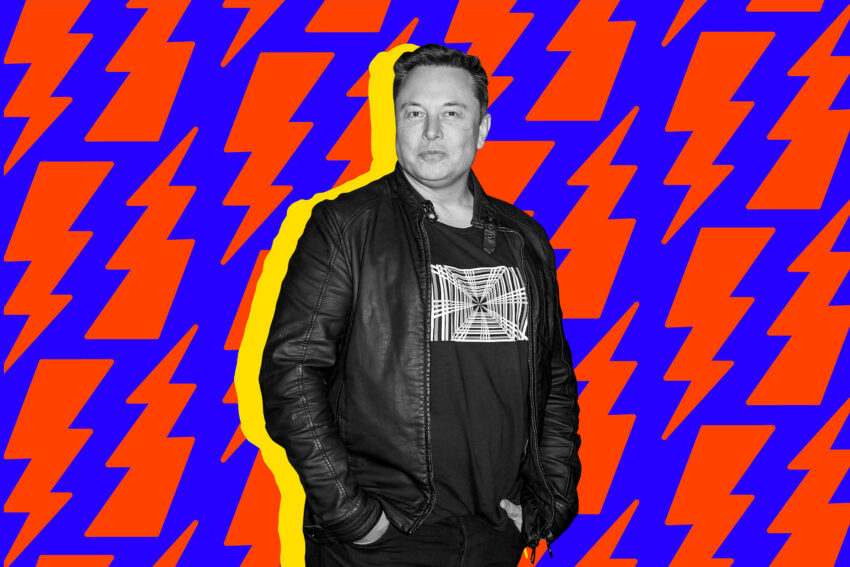
elon musk says he needs 1 trillion In a striking declaration during Tesla’s recent earnings call, CEO Elon Musk asserted that he requires a staggering $1 trillion in compensation to maintain control over the company’s ambitious plans for a “robot army.”
elon musk says he needs 1 trillion
Musk’s Unconventional Proposal
Elon Musk’s comments during the earnings call were anything but subtle. He expressed a pressing need for greater control over Tesla, linking this desire to a proposed pay package that could potentially be worth nearly $1 trillion. This package is contingent upon Musk achieving specific milestones, including the production of 1 million robotaxis and 1 million humanoid robots, as well as significantly increasing Tesla’s valuation.
Musk’s rationale for this unusual request was clear: he fears being ousted as CEO, which could jeopardize his vision for Tesla’s future. “My fundamental concern with regard to how much voting control I have in Tesla is, if I go ahead and build this enormous robot army, can I just be ousted at some point in the future?” Musk stated. This statement underscores his apprehension about the potential for losing control over what he envisions as a transformative technology.
Shareholder Approval and Implications
The proposed pay package is set to be voted on during Tesla’s annual shareholder meeting on November 7th. If approved, it would not only secure Musk’s position but also align his financial incentives with the ambitious goals he has laid out for the company. Shareholders are faced with a complex decision: support Musk’s vision and the potential for unprecedented advancements in robotics, or risk losing a leader who has been instrumental in Tesla’s rise to prominence.
However, Musk’s fears of being removed from his position seem somewhat at odds with his previous statements. He has previously threatened to leave Tesla if the pay package is not approved, raising questions about the sincerity of his concerns. Given Musk’s history of controversial actions and statements, it is difficult to ascertain whether his fears are genuinely rooted in a desire to control the company’s future or if they are merely a tactic to secure his financial interests.
The Context of Musk’s Control
Musk’s call for increased control comes in the wake of significant challenges faced by Tesla over the past year. His involvement in political matters, particularly his vocal support for the Trump administration, has drawn criticism and led to a nationwide protest movement against the company. Despite these controversies, the Tesla board has remained largely supportive of Musk, raising questions about the likelihood of him being ousted.
In light of this, it seems implausible that the board would consider removing Musk, especially given his track record of driving innovation and growth at Tesla. The board’s continued support suggests that they view Musk as an essential component of the company’s future, regardless of the controversies that may arise.
Contradictions in Musk’s Statements
During the earnings call, Musk attempted to downplay the significance of the proposed pay package, stating, “It’s called compensation. But it’s not like I’m going to go spend the money.” This statement raises further questions about his motivations. If Musk is genuinely focused on the future of Tesla and its technological advancements, why is he so insistent on securing such a massive financial package?
Moreover, Musk’s previous warnings about the dangers of artificial intelligence add another layer of complexity to his current position. He has often described AI development as akin to “summoning the demon,” urging for regulatory measures to mitigate potential risks. This juxtaposition of advocating for caution in AI while simultaneously pushing for control over a robot army creates a paradox that is difficult to reconcile.
The State of Tesla’s Robotics
As Musk continues to promote the idea of a robot army, it is essential to consider the current state of Tesla’s robotics initiatives. The company’s Optimus robots, which are intended to be a cornerstone of this vision, have faced significant challenges. Reports indicate that these robots struggled to perform basic tasks, such as distributing popcorn at a company event in Los Angeles. Additionally, during a previous demonstration at Tesla’s Cybercab event, it was revealed that the robots were under remote control, raising questions about their autonomy and functionality.
Musk himself acknowledged the difficulties in developing a robot hand that can match human dexterity, indicating that the road ahead for Tesla’s robotics ambitions is fraught with technical challenges. Despite these hurdles, Musk remains optimistic about the future, claiming that Optimus will be Tesla’s “biggest product of all time.” He envisions a future where robot surgeons and other advanced applications become a reality, describing the robot as “an infinite money glitch” for Tesla.
Future Developments and Expectations
Looking ahead, Musk has announced plans to unveil “Optimus V3” in the first quarter of next year, with aspirations for the fourth version to scale into tens of thousands of units. He remarked, “It’ll seem like a person in a robot suit, which is how we started off with Optimus.” This statement reflects Musk’s ambition to create robots that are not only functional but also relatable to humans, blurring the lines between technology and reality.
However, the skepticism surrounding these claims is palpable. Given the current limitations of Tesla’s robotics, it remains to be seen whether the company can deliver on Musk’s lofty promises. The potential for a robot army may be enticing, but the practical challenges of creating such technology are significant.
Reactions from Stakeholders
The response from Tesla’s shareholders and industry analysts has been mixed. Proxy-advisory firms ISS and Glass Lewis have recommended that shareholders oppose Musk’s proposed pay package, labeling it excessive and potentially detrimental to the company’s long-term interests. In response, Musk has referred to these firms as “corporate terrorists,” a comment that underscores his contentious relationship with critics.
Despite the pushback from advisory firms, historical trends suggest that Tesla’s shareholders may ultimately approve the board’s proposal. Musk’s track record of innovation and the company’s previous successes may sway investors to support his vision, even in the face of significant financial implications.
The Broader Implications
The implications of Musk’s request for control over Tesla’s future extend beyond the company itself. If approved, the proposed pay package could set a precedent for executive compensation in the tech industry, particularly in companies focused on groundbreaking technologies like AI and robotics. This could lead to a reevaluation of how companies incentivize their leaders and the expectations placed on them to deliver transformative results.
Moreover, the conversation surrounding Musk’s control raises broader questions about corporate governance and accountability. As companies navigate the complexities of technological advancement, the balance between innovation and ethical responsibility becomes increasingly critical. Musk’s approach to securing control over Tesla’s future may serve as a case study for other leaders in the industry.
Conclusion
Elon Musk’s assertion that he requires $1 trillion to maintain control over Tesla’s ambitious plans for a robot army is a bold and controversial statement. As shareholders prepare to vote on his proposed pay package, the implications of this decision will reverberate throughout the tech industry. Whether Musk’s vision for a transformative future will come to fruition remains uncertain, but his insistence on control raises critical questions about leadership, accountability, and the ethical considerations of technological advancement.
Source: Original report
Was this helpful?
Last Modified: October 23, 2025 at 9:42 pm
0 views















